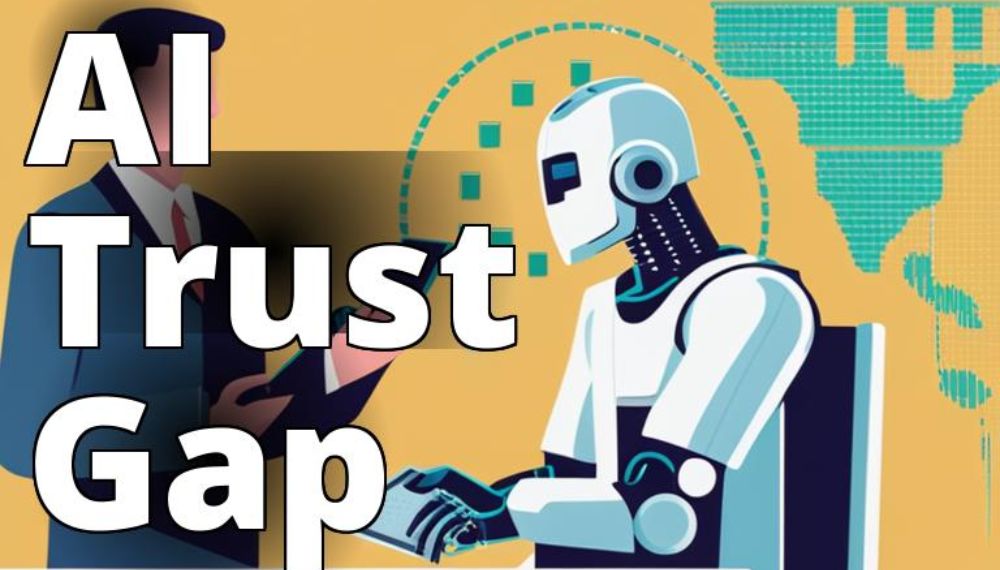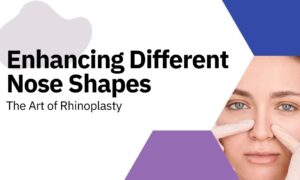Are customers and enterprises on the same page regarding trust in AI? Salesforce survey flags AI trust gap. According to a recent Salesforce survey, there is a significant gap between the two groups, particularly in healthcare and financial services. The survey findings point to concerns about the safety, accuracy, and ethical use of AI among customers, while enterprises struggle to implement trusted AI technologies and cybersecurity protocols. In this article, we will delve deeper into the survey results, explore the implications of the trust gap, and discuss potential solutions.

Survey Findings
In June 2023, Salesforce conducted a survey with over 400 healthcare workers and financial services leaders. The results showed concerning trends regarding the implementation and perception of AI in these industries.

Healthcare Sector Survey Results
The survey found that only 39% of healthcare workers consistently check security protocols before using new tools or technology. This lack of diligence can lead to data breaches and put patient information at risk. Additionally, almost a quarter of healthcare workers believe generative AI is safe to use at work, despite AI’s potential to make errors that could negatively impact patient outcomes.

Financial Services Sector Survey Results
In the financial services sector, the survey found that 59% of respondents believe generative AI apps like ChatGPT have the potential to increase productivity and efficiency. However, there is still a “trust gap” among leaders who have concerns about accuracy and security. This lack of trust can hinder the development and adoption of AI technologies in the financial services industry.
| Healthcare Sector Survey Results | Financial Services Sector Survey Results |
|---|---|
| Only 39% of healthcare workers consistently check security protocols before using new tools or technology. | 59% of respondents believe generative AI apps like ChatGPT have the potential to increase productivity and efficiency. |
| Almost a quarter of healthcare workers believe generative AI is safe to use at work, despite AI’s potential to make errors that could negatively impact patient outcomes. | There is still a “trust gap” among leaders who have concerns about accuracy and security. |
| Lack of trust can hinder the development and adoption of AI technologies in the financial services industry. |
Salesforce survey reveals AI trust gap in healthcare and finance
- Healthcare and finance sectors have concerns over the implementation of AI technology due to inadequate security protocols and concerns over data accuracy and safety.
- Salesforce’s AI Cloud and Einstein GPT Trust Layer are being developed to address these data security and compliance issues.
- Ethical AI development is important for responsible and trustworthy use of AI in these industries.
Implications for Healthcare and Financial Services
The survey findings have significant implications for the healthcare and financial services industries. The critical implication is the need for trusted technologies and improved training to help healthcare workers protect patient data. Similarly, financial services companies must implement trusted AI technologies and cybersecurity protocols to maintain customer trust.
Data breaches caused by inadequate security protocols could lead to legal and financial consequences for healthcare and financial services companies. Customers may also choose to take their business elsewhere if they don’t trust a company’s AI technologies.

Addressing the Trust Gap
Salesforce has introduced AI Cloud, a suite of capabilities that utilize generative AI to improve customer experiences and company productivity, to address the trust gap. The platform includes the Einstein GPT Trust Layer, which addresses data security and compliance concerns. The Einstein GPT Trust Layer allows sales reps, service teams, marketers, commerce teams, and developers to generate personalized emails, chat replies, content, insights, recommendations, code, and bug predictions.
Other healthcare and financial services companies can also prioritize developing trusted AI technologies and implementing cybersecurity protocols. For instance, healthcare providers can use blockchain technology to ensure secure data sharing and prevent unauthorized access. Financial services companies can leverage AI-powered fraud detection systems to identify and prevent fraudulent activities.
The Importance of Ethical AI
Companies must prioritize developing ethical AI, involving designing and using AI in a way that is fair, transparent, and explainable. This is particularly important in healthcare and financial services industries, where the consequences of AI errors can be severe.
Data privacy and security are critical aspects of ethical AI. Companies must prioritize the protection of customer and patient data to maintain trust with their customers. Additionally, transparent and explainable algorithms can help reduce the risk of bias and ensure the responsible use of AI.
Case Study: The Importance of Trustworthy AI in Healthcare
As a healthcare provider, Dr. Maya has always been interested in the potential of AI to improve patient care. However, she has also been acutely aware of the importance of maintaining patient trust and privacy in the adoption of new technologies.
Recently, her hospital implemented a new AI system to help diagnose patients with a rare genetic disorder. While the system was able to accurately identify most cases, there were a few false positives that caused concern among patients and their families.
Dr. Maya quickly realized that the hospital had not done enough to educate patients about the use of AI in their care, nor had they established clear protocols for addressing concerns about the technology. She worked with hospital leadership to develop a comprehensive training program for staff and patients, as well as a process for addressing any issues that arose.
Through this experience, Dr. Maya learned firsthand the importance of developing trustworthy AI technologies and ensuring that patients are fully informed and involved in their own care. She believes that healthcare providers have a responsibility to prioritize patient safety and privacy in the adoption of new technologies, and that this can only be achieved through open communication and a commitment to ethical AI development.
Conclusion
In conclusion, the Salesforce survey flags a significant trust gap in AI use between enterprises and their customers in healthcare and financial services. The article has discussed the implications of the trust gap and potential solutions to address it, including the development of trusted AI technologies, implementation of cybersecurity protocols, and prioritization of ethical AI principles. It is essential to remember that AI is only as trustworthy as the data used to train it. Therefore, companies must prioritize data quality and accuracy to ensure their AI technologies are reliable and trustworthy.
Q & A
What is the Salesforce survey flags AI trust gap?
It’s a tool that identifies potential trust issues with AI systems.
Who can benefit from the Salesforce survey flags AI trust gap?
Companies using AI can use it to improve trust and transparency.
How does the Salesforce survey flag AI trust gap work?
It identifies potentially biased or unexplainable AI decisions.
What if I don’t think my AI system has trust issues?
It’s still a good practice to use the tool to ensure transparency.
How can I address trust issues identified by the Salesforce survey flags AI trust gap?
By taking steps to improve transparency and accountability.
What are some benefits of using Salesforce survey flags AI trust gap?
Improved trust and confidence in AI systems, and reduced risk of bias.









